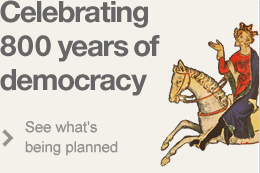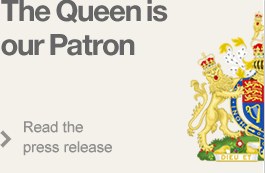By Professor Louise Wilkinson, of Canterbury Christ Church University
Lady Nicholaa de la Haye (b. before 1169 – d. 1230)
When King John visited the cathedral city of Lincoln during the civil war in 1216, a remarkable meeting took place between the king and Lincoln’s castellan, a noblewoman by the name of Lady Nicholaa de la Haye.[i] The meeting left such an impression on the people of Lincoln that it was preserved for posterity in writing, when a set of records was compiled sixty years later from the testimonies of local jurors. On King John’s arrival at Lincoln, Lady Nicholaa, who was then a widow in her fifties or sixties, offered him the castle keys and tendered her resignation as castellan. As Lady Nicholaa explained, ‘she was a woman of great age and had endured many labours and anxieties in the […] castle and was not able to endure such [burdens] any longer’. King John, for his part, had replied ‘sweetly’ to these protestations, but instructed her to keep the castle.[ii]
This conversation between King John and Lady Nicholaa represented more than a simple exchange of social pleasantries. The king, it seems, appreciated Nicholaa’s talents in holding Lincoln castle for the crown. Further proof of Nicholaa’s high esteem in King John’s eyes came on 18 October 1216, when she was appointed joint sheriff of Lincolnshire, alongside Philip Mark, one of John’s most notorious henchmen, whom cap. 50 of Magna Carta had sought to remove from office.116 Nicholaa was still sheriff of Lincolnshire in May 1217, when she doggedly led the defence of Lincoln castle against the forces of the French prince Louis during the battle of Lincoln, one of the decisive battles that helped draw the civil war in England to a successful close for those loyal to John’s young son and heir, King Henry III.
The appointment of a woman as a sheriff was highly unusual in an age when women, as members of ‘the weaker sex’, were usually barred from public life. Lady Nicholaa’s appointment as sheriff in Lincolnshire in 1216 owed a great deal both to her inherited lands and connections, and to her strong track record of loyal service to King John. On the death of her father, Richard de la Haye, in or around 1169, Nicholaa, his eldest daughter, was transformed into a wealthy heiress and a highly attractive marital prize. She possessed extensive estates in Lincolnshire, centred on the barony of Brattleby, and a claim to hold the office of castellan of Lincoln. Although Nicholaa’s first marriage to William fitzErneis remains shrouded in mystery, Nicholaa’s second marriage to Gerard de Camville brought her a degree of personal satisfaction. She bore him two sons and Gerard readily allowed his wife a role in protecting their family’s interests. Such was the level of trust between the couple that when Gerard became entangled in a violent dispute between the royal chancellor and the future King John in 1191 during King Richard I’s absence on the Third Crusade, Gerard placed Nicholaa in charge of Lincoln’s defence. In the words of the chronicler Richard of Devizes, while Gerard assisted John in securing the castles of Nottingham and Tickhill, ‘Nicholaa, not thinking about anything womanly, defended … [Lincoln] castle manfully’ against the chancellor’s forces.[iii] According to royal government records, the crown employed mercenary soldiers for forty days on besieging Lincoln castle. When King Richard returned to England in 1194, both Gerard and his wife were punished for their disloyalty and effectively forced to buy their way back into royal favour.
After Gerard’s death in January 1215, Nicholaa returned prominently to the fore in public life, securing control of her inheritance as a widow, and assuming the office of castellan of Lincoln in the midst of the troubles between King John and his barons. Nicholaa successfully prevented Lincoln castle from falling into rebel hands in the summer of 1216 by purchasing a truce when a rebel army led by Gilbert de Gant occupied the city. It was a measure of Nicholaa’s competence in John’s eyes, and a sign of the desperate circumstances in which he found himself, that on 18 October 1216, presumably just hours before the king’s death, Nicholaa was appointed sheriff of Lincolnshire with Philip Mark. With much of the county in open rebellion against the crown, Nicholaa’s unflinching loyalty to John (and later King Henry III), and her experience in defending Lincoln, made her a viable appointee. Philip Mark’s removal from office here, just a short time after his appointment, left Nicholaa at the head of the royalist cause in Lincolnshire. Until her dismissal in late May 1217, Nicholaa firmly took control of local affairs and added to her personal wealth by exploiting the confiscated lands of rebels. She received substantial grants of property formerly held by William of Huntingfield, one of the twenty-five barons appointed to enforce the terms of Magna Carta. After the civil war was over, William attempted to sue Nicholaa for the recovery of goods worth more than £270 that she had taken from him, so he claimed, after peace was made between the minority government of King Henry III and Louis of France.
Nicholaa’s time as sheriff of Lincolnshire also coincided with her successful resistance to further sieges when Gilbert de Gant, followed by Louis of France, occupied Lincoln and besieged the castle once more. Nicholaa remained in charge of the royalist garrison of Lincoln castle throughout the spring of 1217, when she faced a new threat from a rebel army led by the earl of Winchester and the count of Perche. Recognising the severity of Nicholaa’s predicament, the great regent of England himself, William Marshal, earl of Pembroke, issued a summons for the royalist army to gather in force at Newark and from there proceeded to Lincoln’s relief on 20 May 1217. The outcome of the resulting battle of Lincoln was a decisive royalist victory that helped to seal the fate of Louis’s ambitions in England. Nicholaa’s personal role in defending Lincoln castle and receiving royalist reinforcements attracted contemporary comment. While royalist writers praised Nicholaa for being ‘a worthy lady’ deserving of God’s protection ‘in body and soul’, the rebels and the French portrayed her as ‘a very cunning, bad-hearted and vigorous old woman’.[iv]
In spite of Nicholaa’s loyal service to the crown, she was removed from office as sheriff of Lincolnshire and replaced by Henry III’s uncle, the earl of Salisbury, just four days after the battle of Lincoln. The final years of Nicholaa’s life were dominated by a local power struggle with Salisbury whose son had married Nicholaa’s granddaughter, Idonea, the heiress to Nicholaa’s estates. Time and time again, Nicholaa was called upon to defend her home as the earl tried, ultimately unsuccessfully, to wrest control of Lincoln castle from Nicholaa, first by force and later by offering hostages. Nicholaa relinquished control of Lincoln castle for the last time in June 1226 and died peacefully at her Lincolnshire manor of Swaton in 1230, outliving the earl of Salisbury by four years.
Louise Wilkinson is co-investigator of the Magna Carta Project (www.magnacartaresearch.org). For more information, click here.
[i] For a more detailed account of Nicholaa’s life and career, see L. J. Wilkinson, Women in Thirteenth-Century Lincolnshire (Woodbridge, 2007), ch. 1.
[ii] Translated from Rotuli hundredorum (Record Commission, 1812-18), i, 309. See also ibid., i, p. 315.
[iii] The chronicle of Richard of Devizes of the time of King Richard the First, ed. J. T. Appleby (London, 1963), p. 31 (the translation has been amended here).
[iv] History of William Marshal, ed. A. J. Holden, trans. S. Gregory and notes by D. Crouch (Anglo-Norman Text Society, 2002-6), ii, pp. 326-7; C. Petit-Dutaillis, Étude sur la vie et le règne de Louis VIII, 1187-1226 (Paris, 1894), p. 148; P. Coss, The Lady in Medieval England, 1000-1500 (Stroud, 1998), p. 33.
Featured Article
Magna Carta, or as it is properly called the Great Charter of Liberty, was born on 15 June 1215 at Runnymede when King John – Bad King John as he is more commonly known – was persuaded to accede to a number of demands made...
Read on...Recent Articles
- Magna Carta's American Adventure
- 800th anniversary of Bristol...
- Bristol 800 concert and...
- Emancipation and Magna Carta
- Terrorism and Tolerance -...
- Magna Carta
- Magna Carta Benches mark...
- ABA Magna Carta Memorial...
Stay updated
If you would like to keep informed about the work of the Magna Carta Trust and our partners, please sign up to the newsletter below.
Become a Supporter
There are a number of significant supporter opportunities. Register your interest early to ensure the widest range of options.
Find out more




